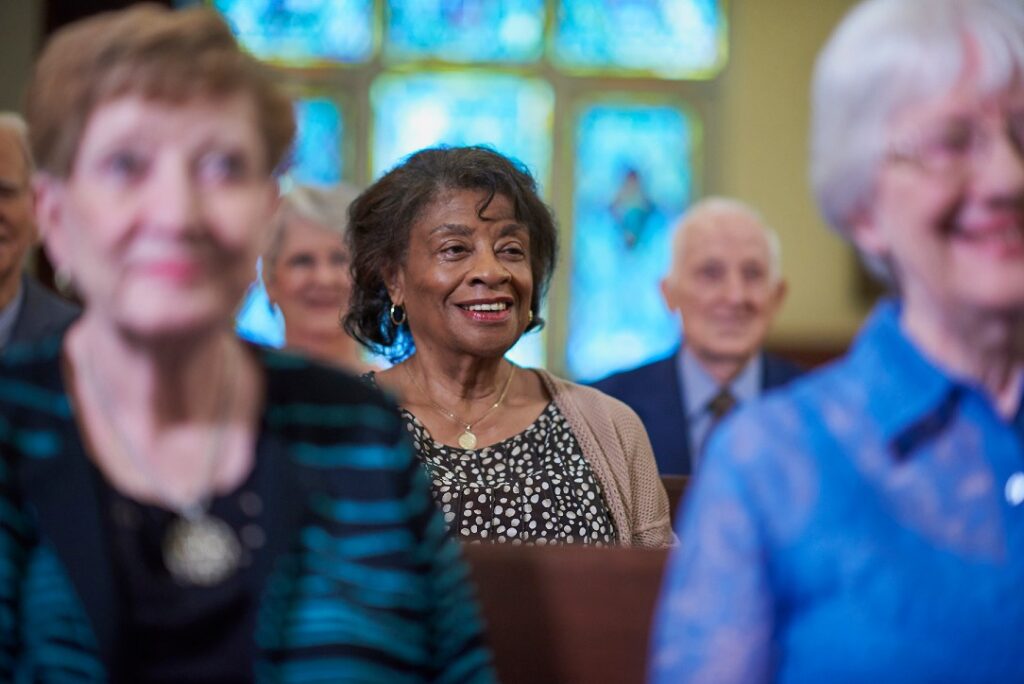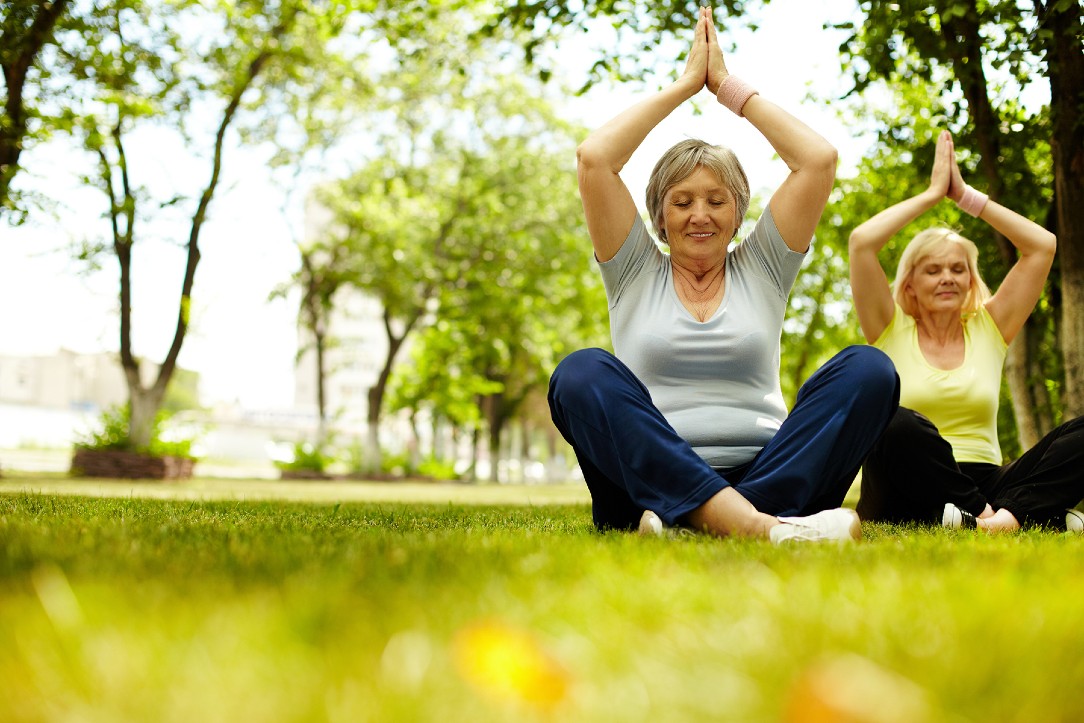Most older people in the United States consider themselves religious or spiritual. They participate in religious activities at a higher level than any other age group. For seniors, aging well and spiritual wellness go hand in hand. And though there are differences between religion and spirituality, they both put you on the path to spiritual wellness. Let’s define some of the differences to see how either traditional religious beliefs or a more general sense of spirituality can provide the spiritual support seniors need to fortify emotional and mental health while sustaining them through whatever life brings.
Religion. Spirituality. Both?
Though similar, religion and spirituality aren’t identical concepts. Religion is often more structured and institutionally based, involving traditional rituals and practices. Spirituality may be considered more intangible and not associated with a particular group or organization. It can refer to feelings, thoughts, experiences, and behaviors related to the soul or to a search for the sacred. Religion involves accountability and responsibility. For older people, the religious community is the largest source of social support outside the family, and involvement in religious organizations is the most common type of voluntary social activity. Spirituality has fewer requirements. People may reject traditional religious dogma but still consider themselves spiritual.

What is Spiritual Wellness?
A starting point may be to consider the premise that our deepest desire is to search for meaning and purpose. For all people, but especially for seniors feeling a growing sense of loss as life progresses, possessing a certain attitude can make a profound difference in one’s inner peace and spiritual wellness. This attitude translates to the realization that we alone control our ability to choose our attitude and response in any given set of circumstances. Thus, the person you become is the result of an inner decision and not of outside influences alone. Holding on to your moral and spiritual self turns any experience, no matter how difficult, into an inner triumph.
Coping through spirituality.
Senior spirituality is tested in the face of new health concerns, progressively limited mobility, changes in one’s sense of purpose, the loss of friends or a spouse — not to mention the many other unknowns of aging. To strengthen your spiritual wellness, try to revisit your core values and keep them in your daily life. Doing so will help you connect to a deeper meaning that will nurture your spiritual health. For many, the expanded social setting of a senior living community can provide new and varied opportunities to develop fresh, effective spiritual connections.
Practical examples that aid spirituality.
You can find spiritual support outside religious services alone. The journey to spiritual wellness can take different paths for different people, but the mile markers along the way can have a common theme. Try to concentrate on tasks that bring fulfillment, increase your joy and peace, and grow your spiritual life.
- Meditation can be helpful in attaining lower blood cortisol levels, diminished anxiety, a lower heart rate and deeper relaxation. It may also increase your spiritual awareness and sense of peace. The form of meditation you take up could involve the guidance of a personal instructor, or simply practicing deep breathing and relaxation on your own. Repeating a mantra to help you focus and feel the loving kindness around you is sure to have a calming effect.
- Being social. We’re social beings, and even a stay-at-home order won’t change that. People with rich relationships report lower levels of depression, stronger immune systems and improved cognition. If you can’t be with friends or loved ones in person, pick up the phone, make a video call using Skype or FaceTime, send an email, text or instant message. You might even write a letter. Spiritual wellness comes, in part, from connecting with people.
- Feeling gratitude can be a fulfilling, enriching experience. True gratitude transcends the act of being thankful. It leads to a more profound appreciation of all you’ve been given and still retain. It leads to a better understanding of all you still have to give. It’s a habit that generates positivity that can improve sleep, self-esteem and mental strength.
- Get outside in the open air. Feel the breeze and the sun on your skin. Smell the flowers and vegetation. Simply walking at your own pace is a form of spiritual connection. Seeing and hearing the life around you is renewing to the soul. Making the outdoors part of your daily experience will reenergize your body, restarting your sense of hope.
- Embrace your religion. Connecting with your religious community can offer great solace in trying times. A religious practice can help you find meaning in life events and provide ways to cope. Health care researchers have found that people who actively participate in their faith have better health outcomes and lower rates of anxiety and depression.
- Make something. You don’t need to be a great artist to create something of value. The act of engaging in artistic endeavor can be deeply enriching. Just let yourself attempt to draw, paint, make music, write or sing. Art helps people process emotions that are otherwise difficult to talk about. It can help you work through negative emotions and contribute to a greater sense of self.
- Helping others and dedicating time and energy to a cause you believe in inspires a sense of purpose. It also improves self-confidence and helps connect you to a community of like-minded people. Think about small acts you can do to brighten someone else’s day. How can you safely volunteer your time and energy to someone in need? If you remain open to these opportunities, they’ll emerge.
Spiritual Wellness is Part of Overall Wellness.
Consider how you spend your time each day. Try to look for the good you can do to help others. Watch for ways to grow and learn. Spiritual life-building can help in each of these areas. Concentrate on what brings fulfillment and increases joy and peace — particularly those activities that grow your spiritual life.
Canterbury Court invites you to explore the many dimensions of wellness available to residents of our community. This is a place where people share social connectedness, fellowship, and a retirement lifestyle that gives you more of what makes life great.
For more on the spiritual wellness activities at Canterbury Court, please call 904-907-2737 or contact us through our website.

